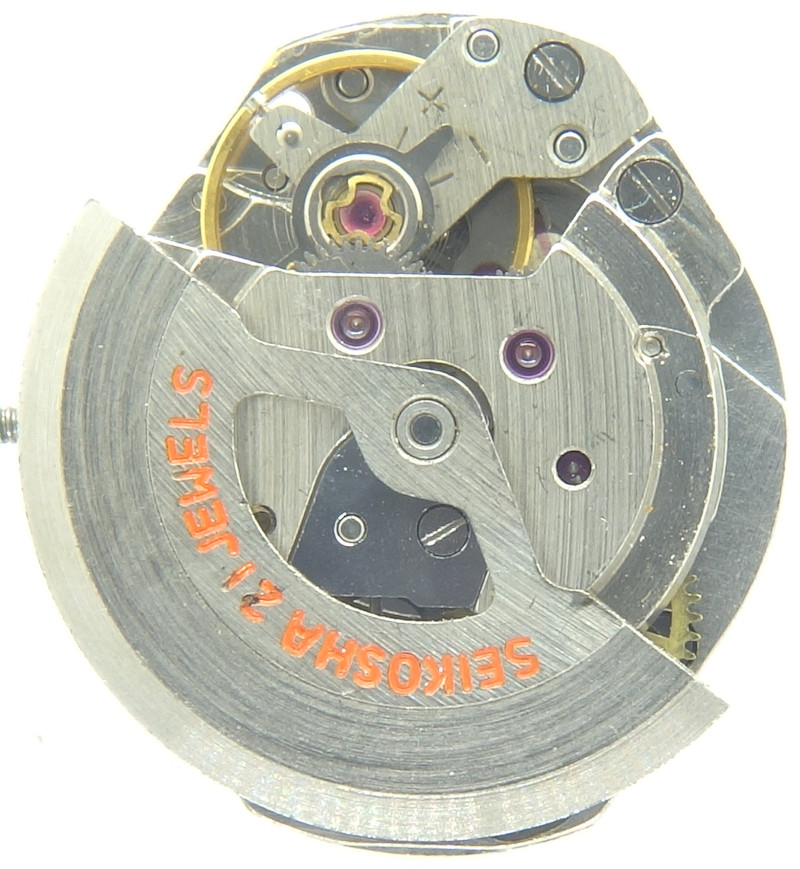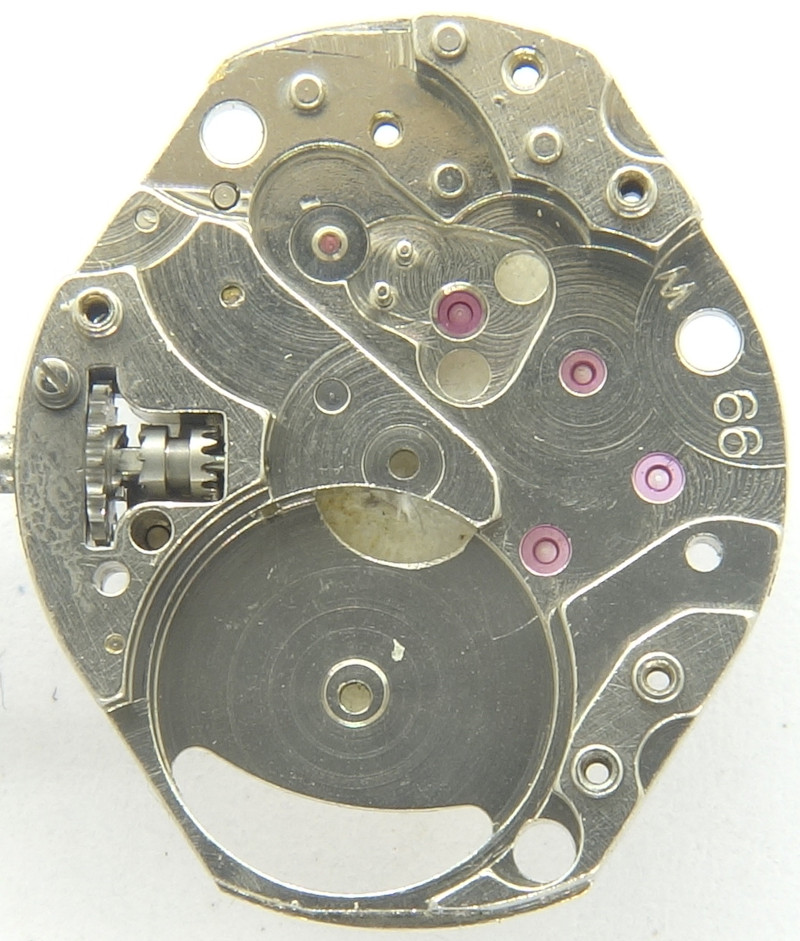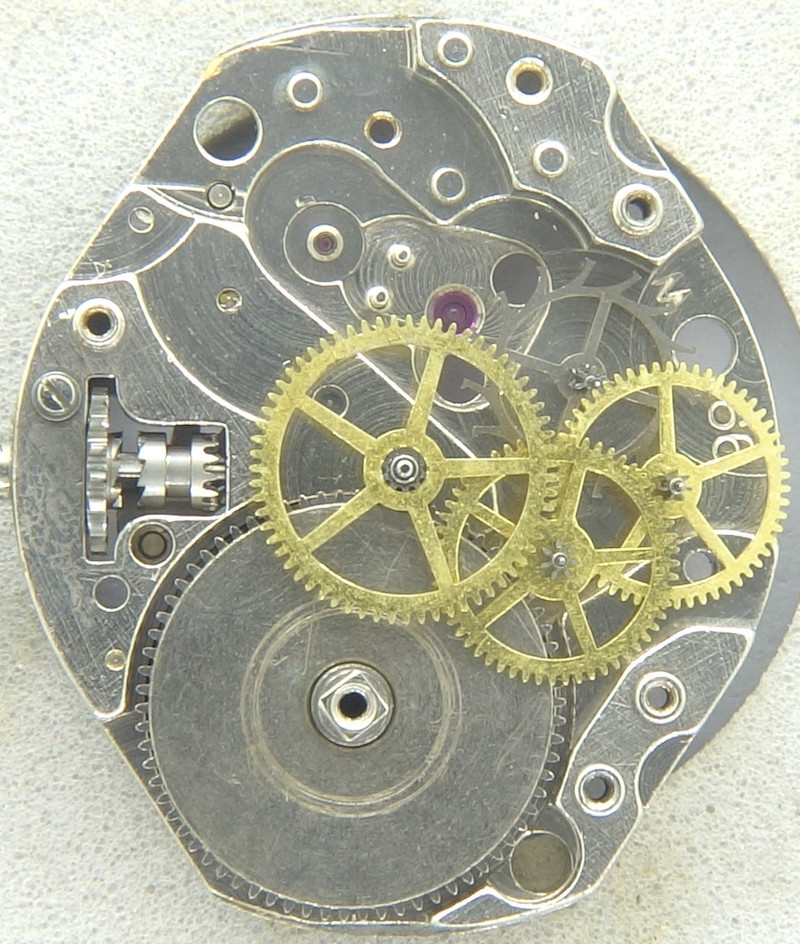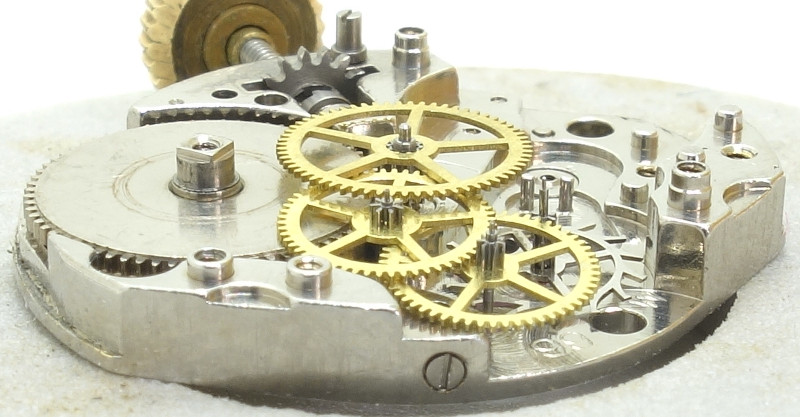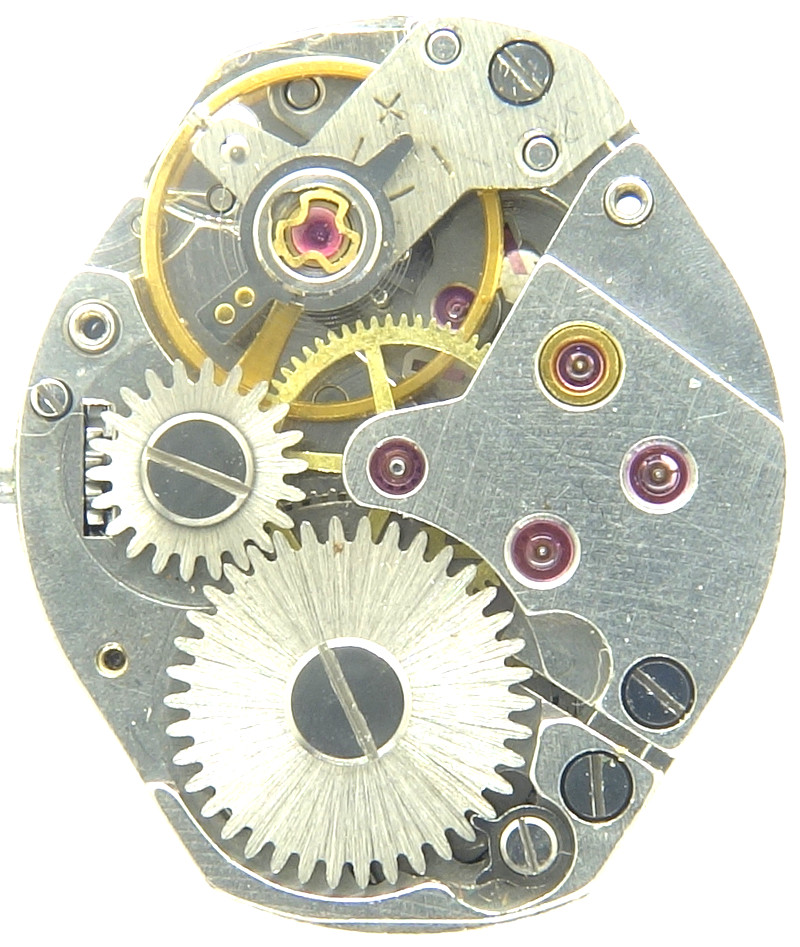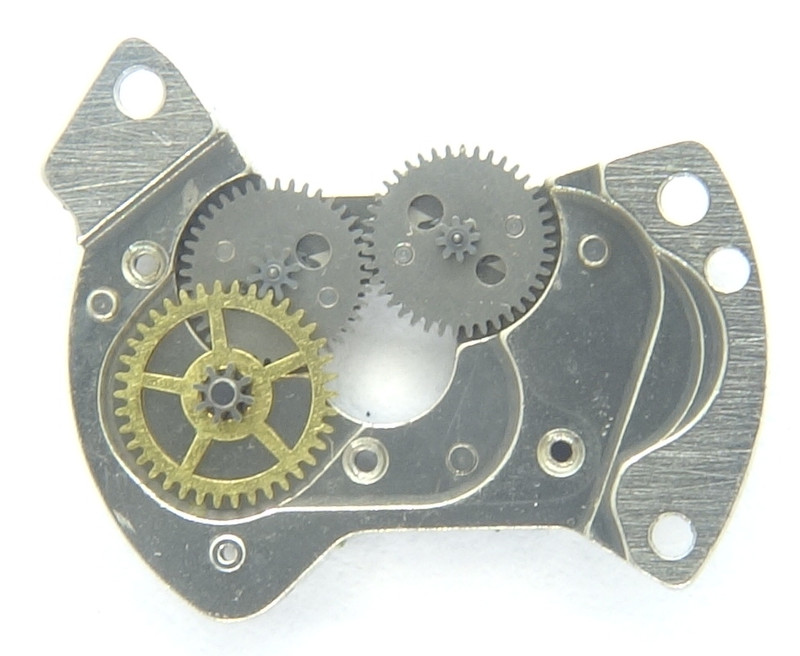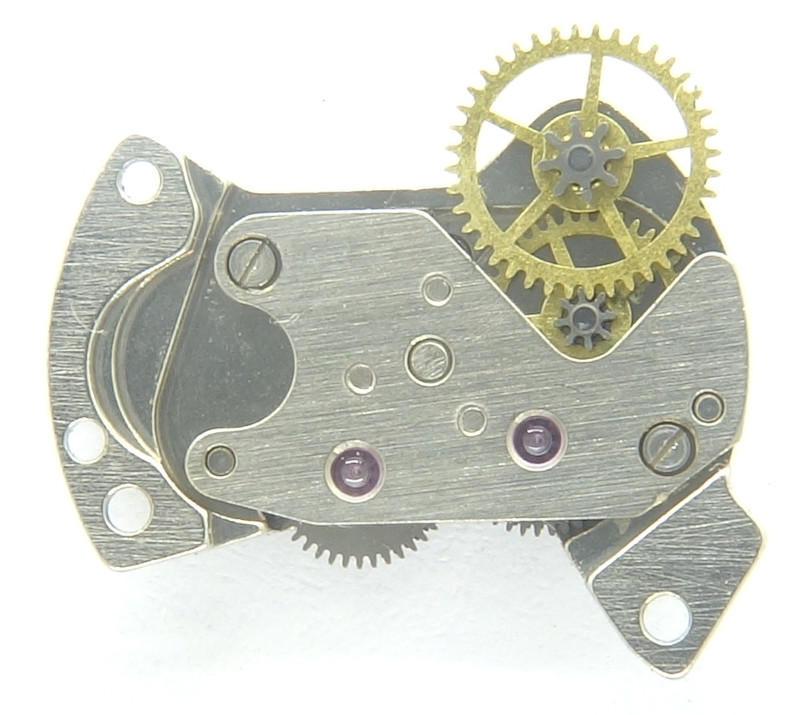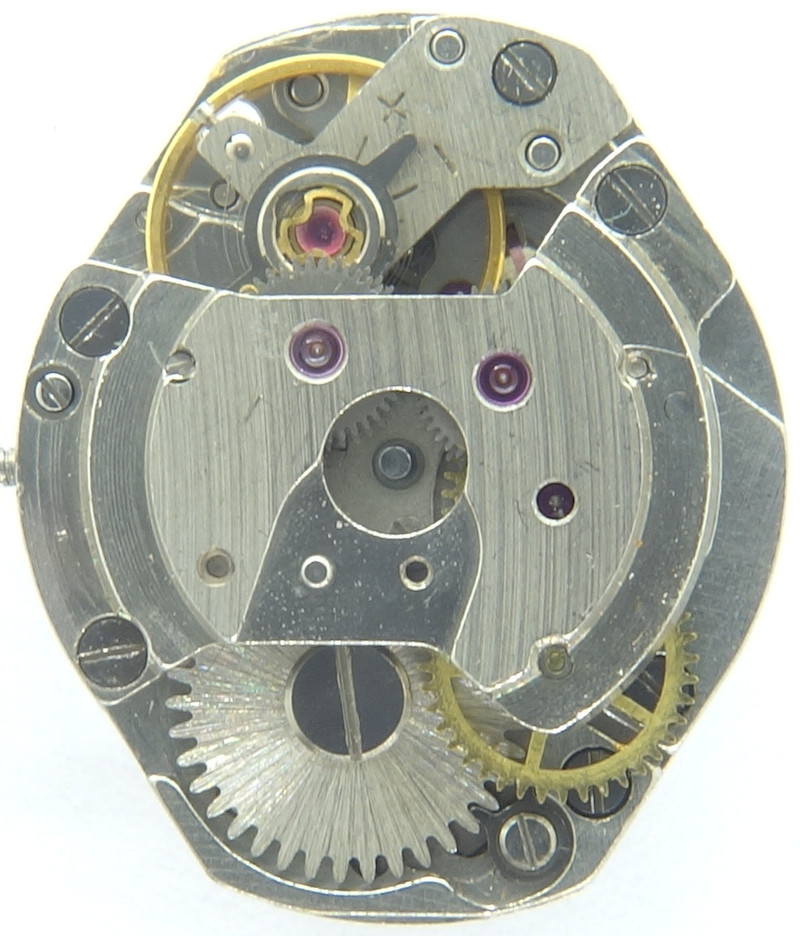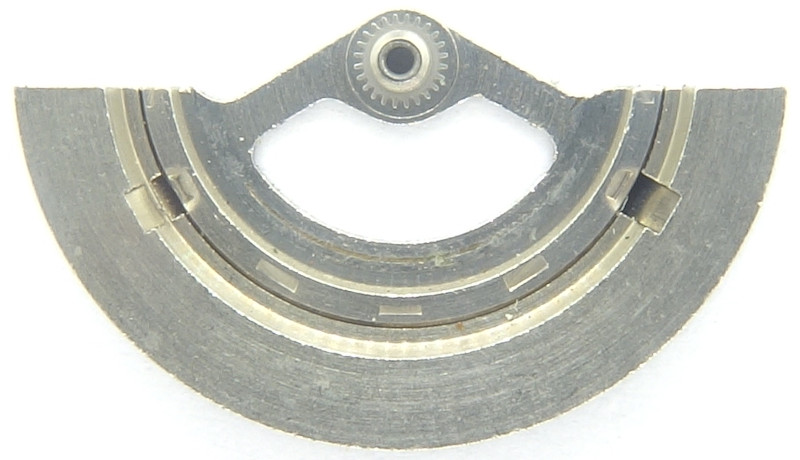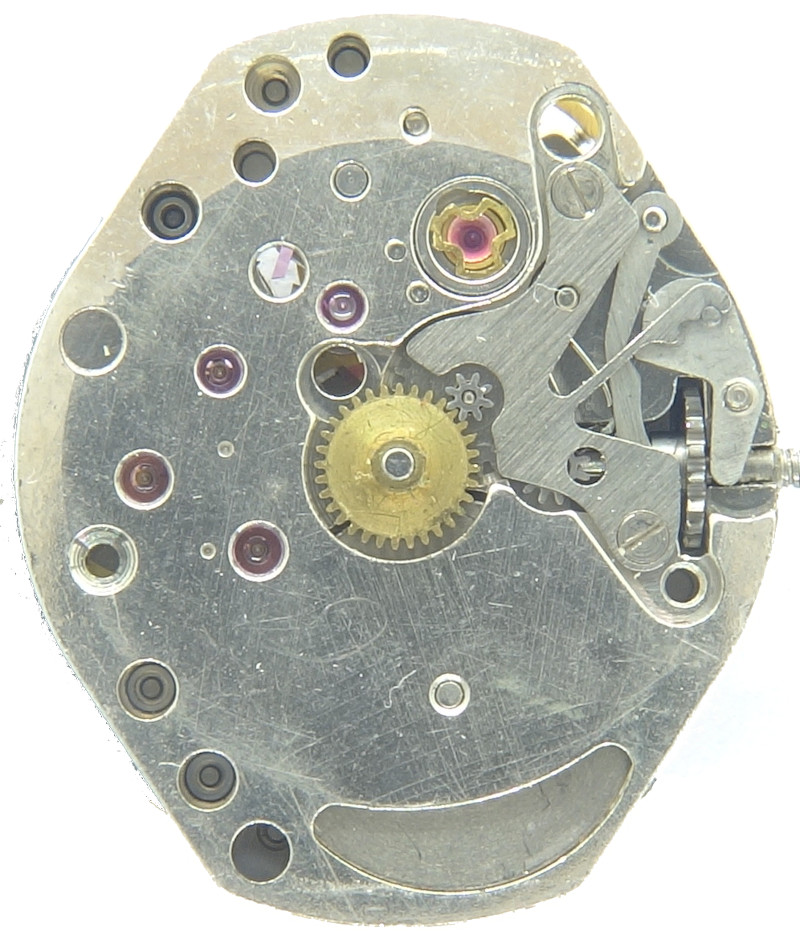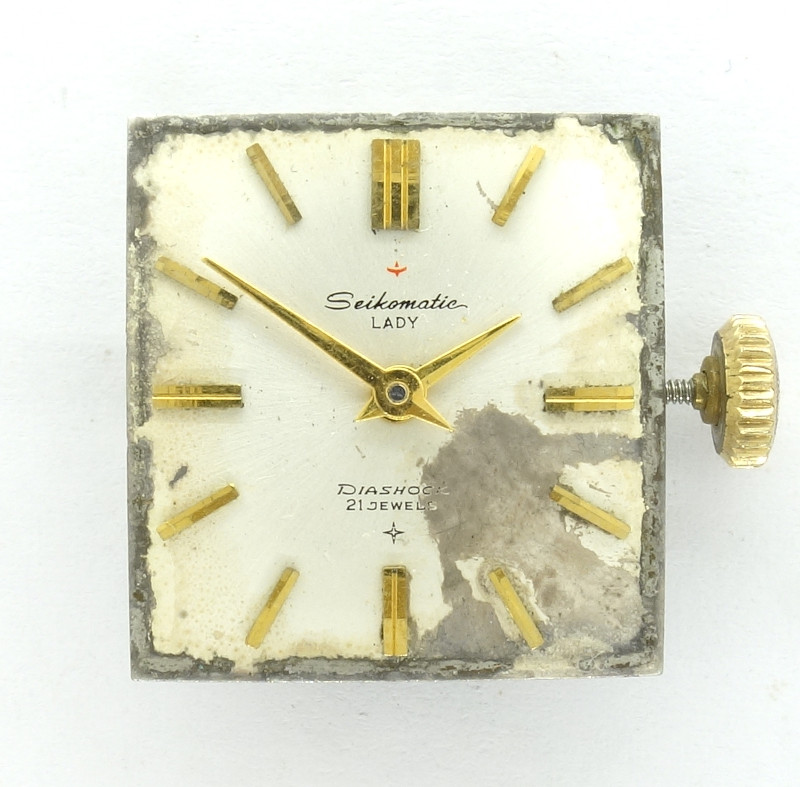Description
The Seiko 2101 is most probably their very first selfwinding movement for ladies’ watches, made in the early 1960ies. Since it there’s no caliber number marked on it, the identification was pretty difficult.
The base plate shows no signs of a selfwinding movement. It’s the base plate of a regular form movement with a size of 6 3/4 x 8 lignes, well executed with all important bearings containing rubies.
The gear train is standard for this kind of movement: The mainspring barrel drives the center minute wheel, followed by the almost identically sized third and fouth wheel, and finally there’s the steel escape wheel. This wheel is beared in a chaton on the gear train bridge.
The two-leg Glucydur anular balance beats with 19800 A/h and is beared in two Seiko inhouse Diashock bearings. The beating frequency can be adjusted with a long regulator arm.
On the right, next to the ratchet wheel, you can see the space, into which the only one-side beared driving wheel from the selfwinding module is put into.
The complete selfwinding mechanism consists of only four gears, the driving wheel, a further reduction wheel (also beared singled-sided) and two pawl exchange wheels, whose upper sides engage with the oscillating weight.
The selfwinding module is attatched to the base movement with three screws.
There’s no early decoupling when the movement is wound manually, the oscillating weight is detached only by the two exchange wheels.
The pretty filigree oscillating weight is axle-beared and secured with a screwed plate.
On the dial side, there are no indications, that we have a selfwinding movement here.
This early selfwinding movement is not only interesting by its shape and size, another interesting detail is, that it is one of the very few selfwinding movement, which only display hours and seconds and don’t offer a seconds or a date indication.
In the lab
Timegrapher result
This movement got a light revision. The results on the timegrapher, it showed afterwards, are more than impressive, not only in absolute figures, but most of all for such a small movement. And the beat error is perfect, especially, when you take into account, that the hairspring is connected to a fixed stud and the beat error is very hard to correct.| horizontal positions | |||
|---|---|---|---|
| dial up | +3 s/d | 225° | 0.0ms |
| dial down | +16 s/d | 232° | 0.0ms |
| vertical positions | |||
| crown right (12 up) | +15 s/d | 210° | 0.3ms |
| crown up (3 up) | +23 s/d | 216° | 0.0ms |
| crown left (6 up) | +13 s/d | 216° | 0.2ms |
| crown down (9 up) | 0 s/d | 215° | 0.1ms |
Technical data
| Manufacturer: | Seiko |
| Caliber: | 2101 |
| Size: | 6 3/4 x 8''' (measured: 15,5 x 17,9mm) |
| A/h: | 19800 |
| Number of jewels: | 21 |
| Escapement: | Pallet lever |
| Balance types: |
Glucydur anular balance (two legs) |
| Shock protection(s): |
Diashock (Seiko) |
| Balance bearing / direction hairspring: | Counterclockwise |
| Moveable stud: | no |
| Adjust mechanism: | Long regulator arm |
| Construction: |
|
| Construction type: | solid construction |
| Winding mechanism: | yoke winding system |
| Setting lever spring: | 4 hole(s) |
| Features: |
|
| Production period: | 1963 - 19?? |
| Inventory number: | 20041 |
